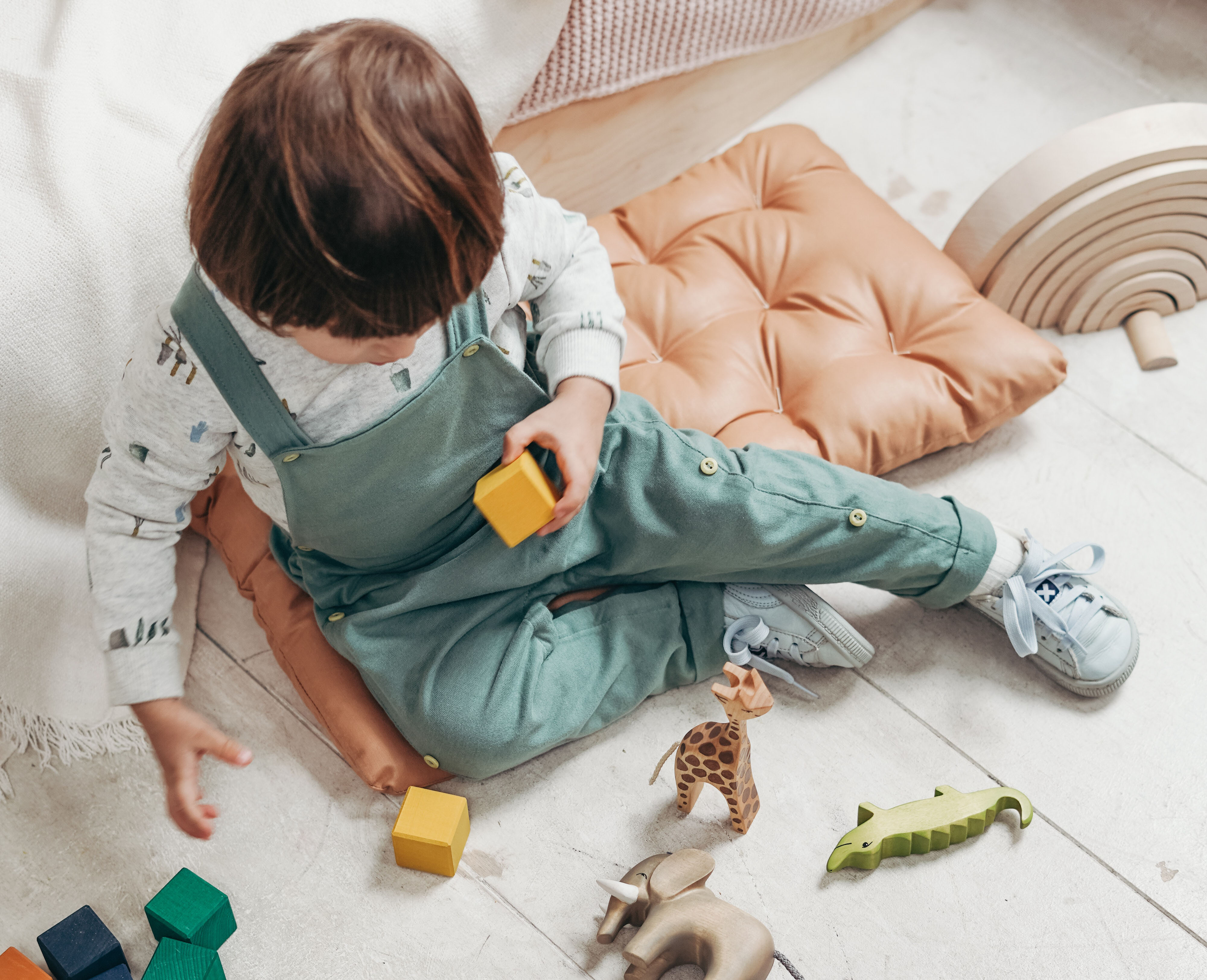During the first year of life, babies seem to hit a new milestone every week! But as they enter toddlerhood, it can feel like these milestones start to slow down. However, there's still a ton of growth and development that's happening during these years that are setting them up for success later on, bit by bit. Here are some of the skills your little one is acquiring, specifically between the ages of two and three.
Gross Motor Skills
In the first eighteen months of life, most babies go from wobbly crawls to taking their first steps. But beyond this, their gross motor skills are continuing to develop and improve all the time. Between the ages of 2 and 3, toddlers will start to skip, jump (with two feet both leaving the ground at once) and can learn to ride a tricycle or scooter. Their balance and coordination gets better all the time, making it easier for them to move around and explore their world.
Pincer Grip
During the first year of life, babies start to develop their fine motor skills by reaching for objects and eventually picking them up with their fingers. In toddlerhood, these fine motor skills are really put to work as they hold utensils, crayons and even start to use buttons and zips. They'll also start to build with blocks and engage in other hands-on activities, which help them develop their dexterity and hand-eye coordination.
Speech Development
Babies start to babble and make simple sounds in their first year of life, but in toddlerhood, their speech skills really start to take off. Between the ages of 2 and 3, their speech and language skills are rapidly developing, and as a parent it's amazing being able to have conversations with your child. For me, this has been one of the most rewarding parts as I've been able to understand how my little one's mind works, what she's thinking and what her preferences are rather than having to guess. It's totally normal for toddlers to have trouble pronouncing certain words, but don't worry, they'll get there! It's important to remember that every child develops at their own pace, and there is a wide range of what is considered 'normal' when it comes to speech development in toddlers. If you're at all worried, have a chat with your health visitor as they'll be able to give you specific advice or make referrals if needed.
Fantastic Food
In toddlerhood, little ones eating habits continue to develop as they start to explore new tastes and textures. Picky eating can come into play so it's important to keep exposing toddlers to a wide range of foods, and do so in a non-pressure environment. Many eating issues can actually stem from power struggles, if you know toddlers you'll know that the more you try and force things onto them the more they'll rebel. Putting dinner and dessert on the same plate can help, as it shows that sweet foods aren't a 'treat' to be desired and coveted. Seeing all foods as equal is more likely to prevent issues with sweet obsession compared with being overly strict, and can actually create a healthier relationship with food overall.
Cognitive Development
In toddlerhood, little ones cognitive skills really start to blossom. Between the ages of 2 and 3, toddlers start to understand cause and effect, engage in imaginative play, and start to understand and recognise basic concepts such as size, shape, and number. They'll also start to develop their memory and problem-solving skills. Encouraging activities that promote cognitive development, such as puzzles and simple games, can help support their growth.
Emotional Development
In the first year of life, babies start to experience a range of emotions and express them through crying and fussiness. But in toddlerhood, their emotional development continues to grow. Toddlers start to understand and express a wider range of emotions, such as happiness, sadness, anger, and fear. They'll also start to understand the emotions of others and start to develop empathy. It's important to provide a supportive and understanding environment, and help them regulate their emotions through techniques such as deep breathing and counting to 10.
Making Friends and Having Fun
Babies start to interact with others and engage in social play in their first year of life, but in toddlerhood, their social skills continue to develop. They start to form stronger bonds with other children and engage in cooperative play, such as sharing toys and taking turns. They'll also start to understand social norms and rules, such as taking turns and following directions. Encouraging playdates and social interactions with other children can help promote their social development.
The secret years of toddlerhood may seem like the milestones have slowed down, but there's still so much growth and development happening. So, the next time you feel like the milestones have slowed down, just remember all the secret growth and development that's happening behind the scenes.








